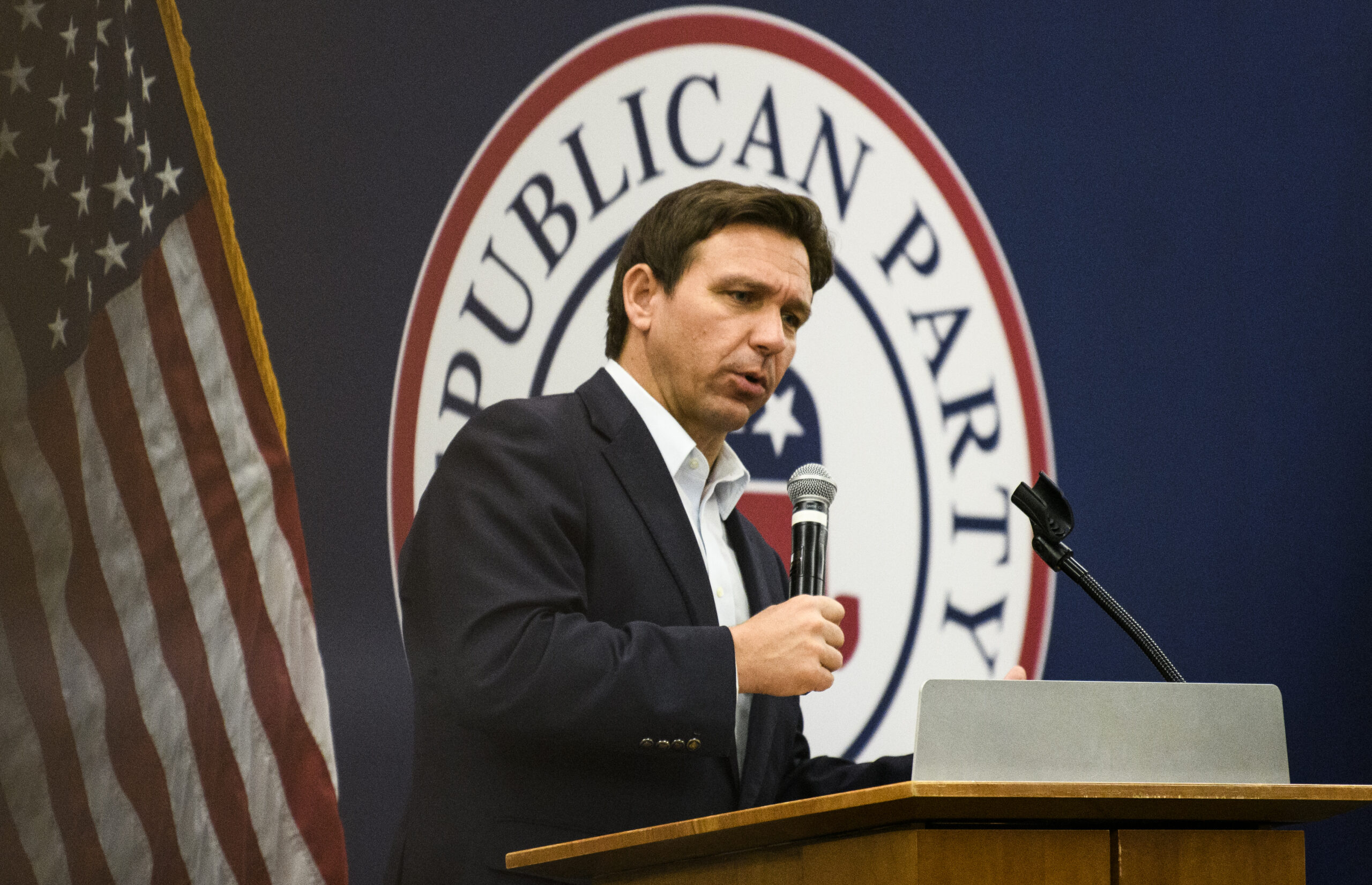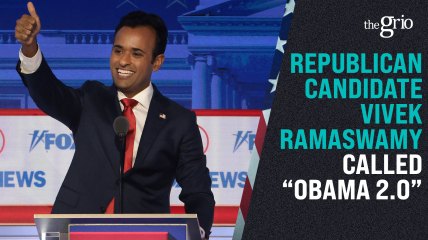From slavery to citizenship, race emerged at second Republican presidential debate
Candidates Tim Scott, Ron DeSantis, and Vivek Ramaswamy made waves in some of their remarks on Wednesday night's debate stage.
Candidates for the 2024 Republican presidential nomination participated in the party’s second national debate on Wednesday night, and the topic of race was noticeably on display.
During the two-hour debate between seven of the GOP White House hopefuls, Florida Gov. Ron DeSantis was asked about his state’s new Black history curriculum that teaches students that Black people benefited from chattel slavery due to the skills they developed while enslaved.
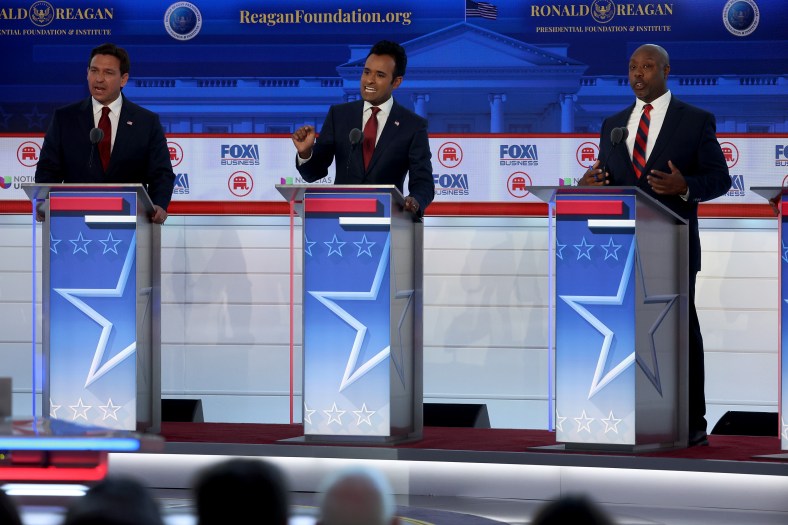
The Florida governor quickly dismissed the question as a “hoax that was perpetrated by [Vice Preisdent] Kamala Harris.”
When asked what his message was to the descendants of slaves who were “hurt” by the controversial course, DeSantis punted that the Black history course was “written by descendants of slaves” – referring to two conservative Black men who serve on the state board that approved the new curriculum.
“Our country’s education system is in decline because it’s focused on indoctrination,” said DeSantis, who championed his education policies as a win for parental rights. “We eliminated critical race theory, and we now have American civics and the Constitution in our schools in a really big way.”
Florida State Sen. Shevrin Jones dismissed DeSantis’ attempt to punt criticisms of the state’s Black history program on Vice President Harris, who in July delivered a fiery speech in Florida condemning it.
“Gov. DeSantis tends to use other people as his scapegoat, while he is the one who has created these policies,” Jones told theGrio. “Kamala Harris didn’t ban books. Kamala Harris didn’t reject African American studies. Kamala Harris didn’t say that slavery was a benefit to the enslaved.”
Jones, a vocal critic of the governor, said Floridians are “worse off” since he took office.
“Property insurance is up, we have the largest teacher shortage in Florida’s history, and we lead the nation with the most uninsured,” he added. “America doesn’t need him as its leader.”
Marcus Board Jr., associate professor of Black politics at Howard University, told theGrio that DeSantis “connecting a Black scholar” to his defense of his state’s Black history curriculum “tells us that he understands the currency of racial politics in America enough to know that he can’t do any of this alone.”
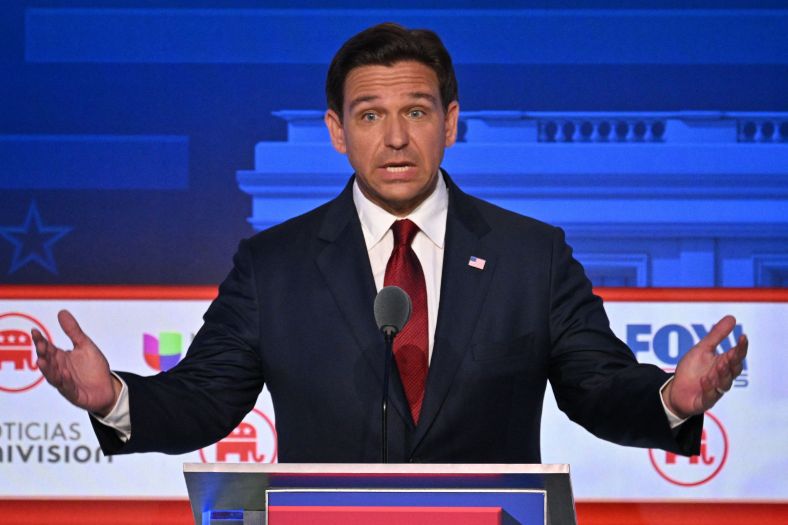
He added, “But DeSantis will remain alone – neither Black people nor Republicans support his presidential candidacy.”
Christina M. Greer, associate professor of political science at Fordham University, said DeSantis is “literally giving contracts to book companies that are creating materials that essentially say that slavery wasn’t that bad.”
Doing so “will only put the students in Florida way behind other students in the country for many, many years to come,” she told theGrio.
“I think some people are starting to realize that…and that might be part of the reason why he’s doing so poorly,” said Greer.
The Republican Party’s lone Black presidential candidate, U.S. Senator Tim Scott of South Carolina, also condemned DeSantis’ Black history course, saying on the debate stage, “There is not a redeeming quality in slavery.”
While Senator Scott acknowledged that “Americans suffered because of slavery,” he said the country has “overcome” it. “We are the greatest nation on Earth because we faced our demons in the mirror and made a decision,” he said.
Scott continued, “Black families survived slavery. We survived poll taxes and literacy tests. We survived discrimination being woven into the laws of our country.”
The senator then repeated a phrase that garnered controversy in 2021: “America is not a racist country.”
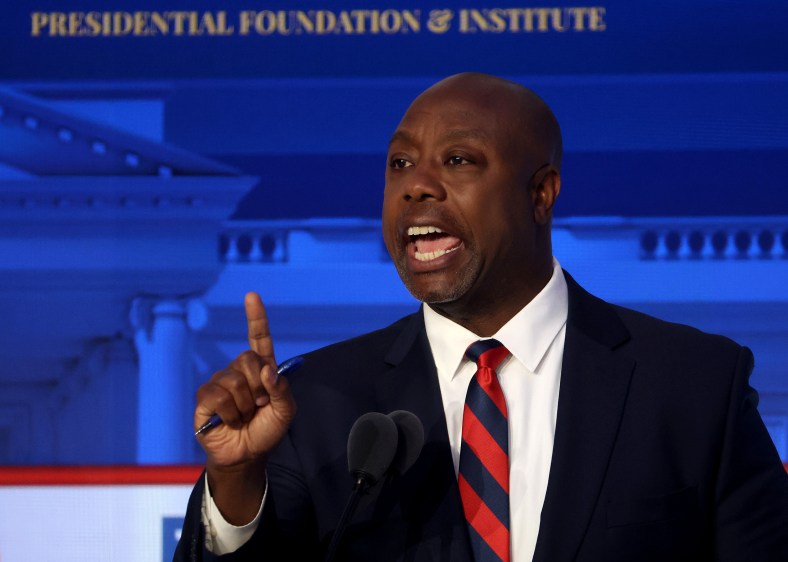
Greer said Scott is “denying the realities that are in front of our faces.” She explained that denying that racism still exists in America is a “type of mindset that he knows his party’s in, and for him to be a part of it, he has to sort of adopt the nonsense.”
The political scientist said that while Scott’s remarks were “disappointing,” they were not surprising.
Similarly, Professor Board of Howard said, “Scott knows that his audience is invested in America as a flawless symbol of global triumph.”
He suggested that Scott, a likely longshot to the Republican nomination, is really using the presidential debate stage to audition as the vice presidential running mate to former President Donald Trump, who has for months maintained an overwhelming lead in national polls.
“In the same way that DeSantis attaches a Black educator to his problematic education, Scott is similarly volunteering himself as an attachment for the next Republican presidential nominee.”
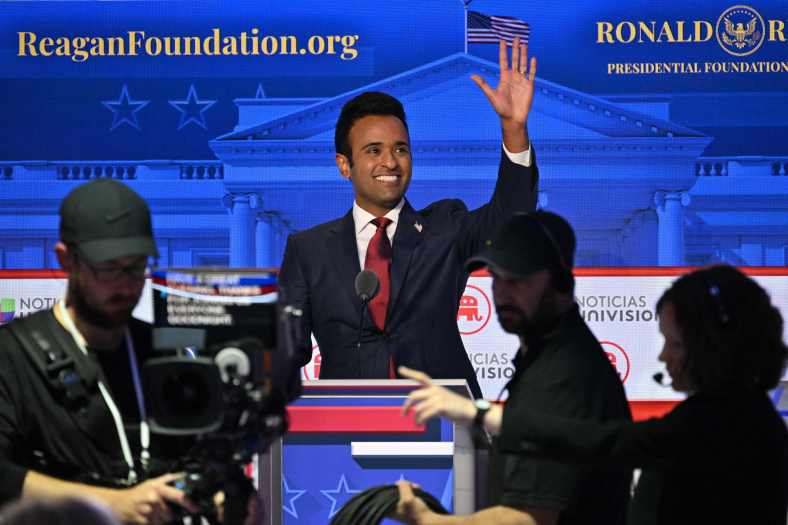
Businessman Vivek Ramaswamy, who has been fashioned as a “Trump 2.0,” also made waves during last night’s Republican debate when he suggested that based on his interpretation of the 14th Amendment, those who are born in the U.S. with parents who entered in the country illegally should not be granted birthright citizenship.
“I favor ending birthright citizenship for the kids of illegal immigrants in this country,” said the 38-year-old son of Indian immigrants. “If the kid of a Mexican diplomat doesn’t enjoy birthright citizenship, then neither does the kid of an illegal migrant who broke the law to come here.”
Professor Greer of Fordham suggested an irony in Ramaswamy’s stance on birthright citizenship, considering he himself is an “anchor baby.” But more importantly, she said, he “denigrates other immigrants” in the process.
“Somehow, he’s trying to convince members of his party that…you’re being essentially the most draconian Republican when it comes to immigration,” said Greer. “Essentially, his entire platform is to make it more difficult for immigrants – read people of color – to participate in American democracy.”
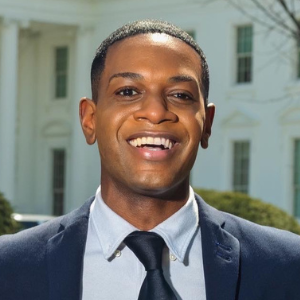
Gerren Keith Gaynor is a White House Correspondent and the Managing Editor of Politics at theGrio. He is based in Washington, D.C.
TheGrio is FREE on your TV via Apple TV, Amazon Fire, Roku, and Android TV. Please download theGrio mobile apps today!
